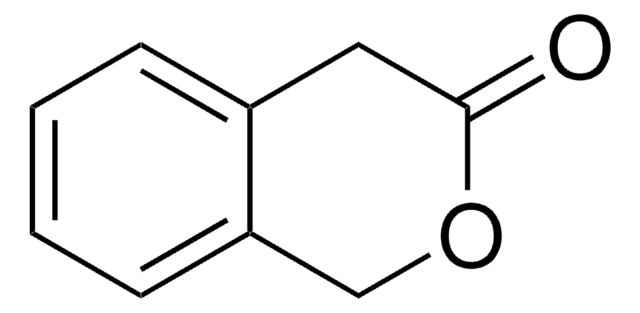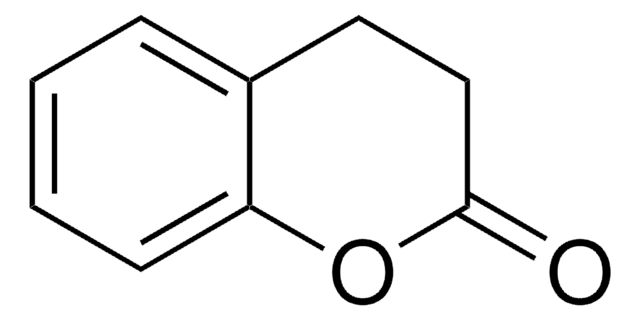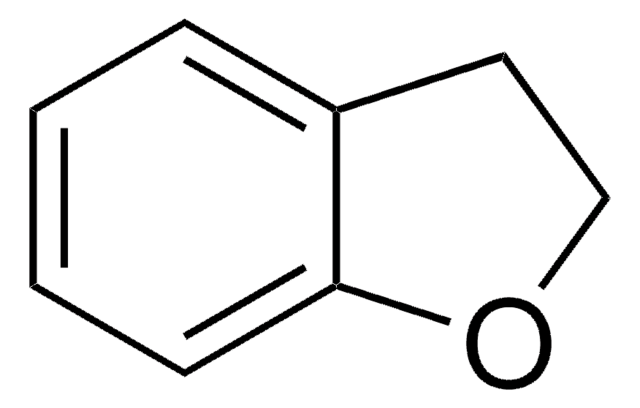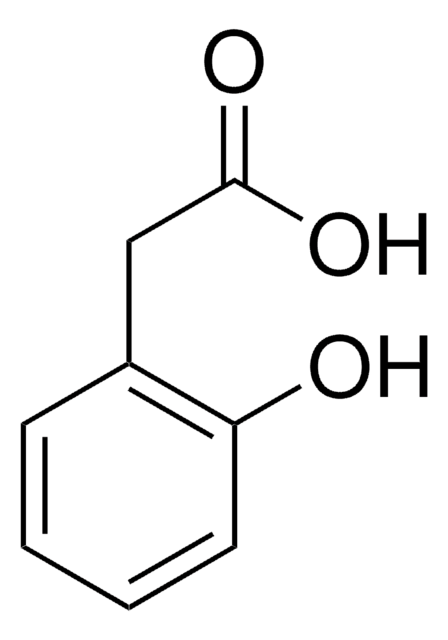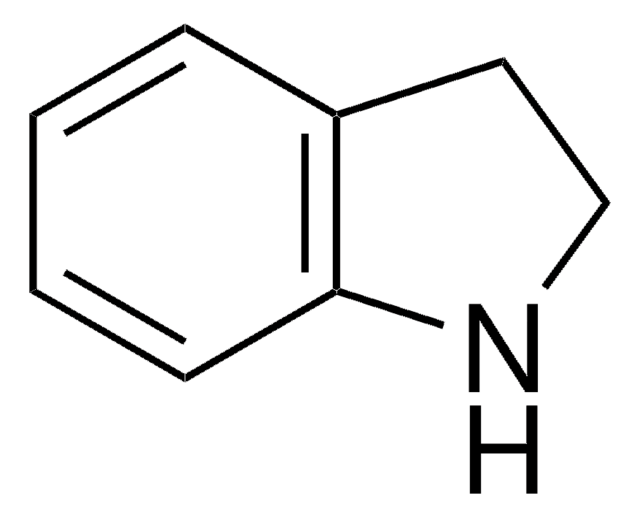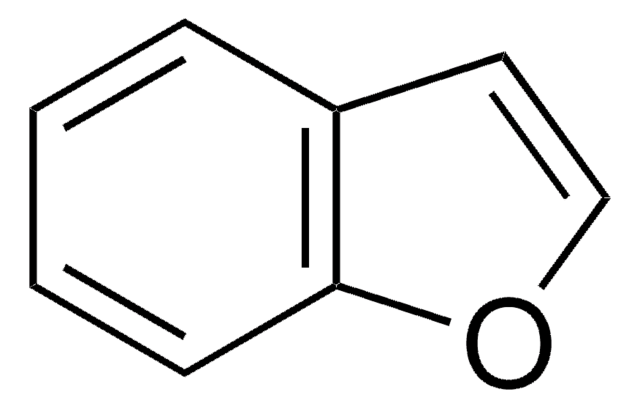Alle Fotos(1)
Wichtige Dokumente
124591
2-Cumaranon
97%
Anmeldenzur Ansicht organisationsspezifischer und vertraglich vereinbarter Preise
Alle Fotos(1)
About This Item
Empirische Formel (Hill-System):
C8H6O2
CAS-Nummer:
Molekulargewicht:
134.13
EG-Nummer:
MDL-Nummer:
UNSPSC-Code:
12352100
PubChem Substanz-ID:
NACRES:
NA.22
Empfohlene Produkte
Assay
97%
Form
powder
bp
248-250 °C (lit.)
mp (Schmelzpunkt)
49-51 °C (lit.)
Löslichkeit
H2O: soluble 3.8 g/L at 30 °C
SMILES String
O=C1Cc2ccccc2O1
InChI
1S/C8H6O2/c9-8-5-6-3-1-2-4-7(6)10-8/h1-4H,5H2
InChIKey
ACZGCWSMSTYWDQ-UHFFFAOYSA-N
Angaben zum Gen
human ... CYP1A2(1544)
Verwandte Kategorien
Anwendung
2-Coumaranone has been used to study the effects of coumarins on 7,12-dimethyibenz(a)anthracene induced neoplasia of the rat mammary gland. It was employed as probe for detecting enzymes which hydrolyze 2-hydroxybenzofuran structures.
Signalwort
Warning
H-Sätze
Gefahreneinstufungen
Eye Irrit. 2 - Skin Irrit. 2 - Skin Sens. 1
Lagerklassenschlüssel
11 - Combustible Solids
WGK
WGK 3
Flammpunkt (°F)
257.0 °F
Flammpunkt (°C)
125 °C
Persönliche Schutzausrüstung
Eyeshields, Gloves, type N95 (US)
Hier finden Sie alle aktuellen Versionen:
Besitzen Sie dieses Produkt bereits?
In der Dokumentenbibliothek finden Sie die Dokumentation zu den Produkten, die Sie kürzlich erworben haben.
V Strubel et al.
FEMS microbiology letters, 49(2-3), 233-238 (1989-04-01)
Dibenzofuran degrading bacteria were enriched from various environmental sources. A mutualistic mixed culture of strain DPO 220 and strain DPO 230 was characterized. Strain DPO 220 alone showed limited growth with dibenzofuran as sole source of carbon and energy (td
Inhibition of chemical carcinogen-induced neoplasia by coumarins and alpha-angelicalactone.
L W Wattenberg et al.
Cancer research, 39(5), 1651-1654 (1979-05-01)
Esa R Korpi et al.
Addiction biology, 22(4), 1022-1035 (2016-03-19)
Opioid antagonist treatments reduce alcohol drinking in rodent models and in alcohol-dependent patients, with variable efficacy across different studies. These treatments may suffer from the development of tolerance and opioid receptor supersensitivity, as suggested by preclinical models showing activation of
Eric M Jones et al.
Cell systems, 8(3), 254-260 (2019-03-25)
G protein-coupled receptors (GPCRs) are central to how mammalian cells sense and respond to chemicals. Mammalian olfactory receptors (ORs), the largest family of GPCRs, mediate the sense of smell through activation by small molecules, though for most bonafide ligands, they
Ilaria Zamparo et al.
Cell reports, 29(13), 4334-4348 (2019-12-26)
In mammals, odorant receptors not only detect odors but also define the target in the olfactory bulb, where sensory neurons project to give rise to the sensory map. The odorant receptor is expressed at the cilia, where it binds odorants
Unser Team von Wissenschaftlern verfügt über Erfahrung in allen Forschungsbereichen einschließlich Life Science, Materialwissenschaften, chemischer Synthese, Chromatographie, Analytik und vielen mehr..
Setzen Sie sich mit dem technischen Dienst in Verbindung.